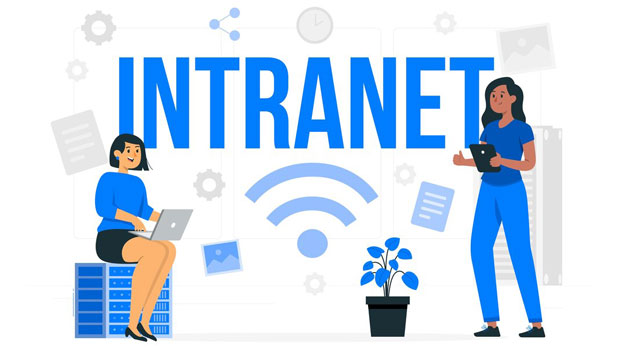When considering proxy services under protocols like HTTP, HTTPS, and SOCKS5, two names that frequently emerge are PYPROXY and Tamilblasters Proxy. Both of these proxies offer unique features, but which one stands out in terms of performance, security, and reliability? This article dives deep into comparing PyProxy and Tamilblasters Proxy, analyzing them under the three commonly used protocols. Whether you are a developer, a content consumer, or a business looking to enhance your online anonymity, understanding the nuances of these proxies will help you make an informed decision on which service best suits your needs. Introduction to Proxy ProtocolsBefore diving into the specifics of PyProxy and Tamilblasters Proxy, it's important to understand the role of HTTP, HTTPS, and SOCKS5 protocols in proxy services. Each protocol offers different benefits and is suited for distinct use cases.- HTTP Proxy: This is the most common form of proxy that handles web traffic. It is suitable for browsing websites and basic internet usage but lacks encryption, making it less secure.- HTTPS Proxy: A more secure version of HTTP proxies, HTTPS proxies encrypt your connection, making them ideal for activities requiring privacy, like online banking or accessing secure websites.- socks5 proxy: SOCKS5 is a versatile protocol that supports a wider range of internet traffic, including HTTP, FTP, and torrents. It also offers strong encryption and higher anonymity compared to HTTP and HTTPS proxies.What is PyProxy?PyProxy is a versatile proxy service that supports HTTP, HTTPS, and SOCKS5 protocols. It's designed to offer high-speed internet access while maintaining privacy. PyProxy focuses on providing secure and fast connections, making it a preferred choice for users who need reliability and speed for various online activities.What is Tamilblasters Proxy?Tamilblasters Proxy, like PyProxy, supports HTTP, HTTPS, and SOCKS5 protocols. This proxy service is tailored for users looking for reliable access to content, especially in regions with restricted internet access. It focuses on ensuring high uptime and seamless browsing, making it popular among those who need an uninterrupted connection for streaming and browsing.Performance ComparisonWhen it comes to performance, both PyProxy and Tamilblasters Proxy offer competitive speeds under all three protocols. However, there are subtle differences that may influence the choice based on the user's specific requirements.- Speed: PyProxy generally excels in offering faster speeds, particularly when using the SOCKS5 protocol. The advanced infrastructure and optimized routing allow for minimal latency and faster load times. Tamilblasters Proxy, while reliable, may experience occasional speed fluctuations due to its focus on content access rather than raw speed.- Reliability: Both proxies are known for their reliability, with minimal downtime. However, Tamilblasters Proxy is often praised for its stability in regions with internet censorship, as it bypasses restrictions efficiently.Security & AnonymityWhen it comes to privacy and security, both PyProxy and Tamilblasters Proxy provide adequate protection, but there are notable differences in their approaches.- Encryption: HTTPS and sock s5 proxies offer strong encryption, but PyProxy tends to implement more advanced encryption methods, ensuring higher data security during transmission. Tamilblasters Proxy, while secure, may not always offer the same level of encryption due to its focus on ease of use and content accessibility.- Anonymity: SOCKS5 proxies generally provide a higher level of anonymity compared to HTTP and HTTPS. PyProxy’s SOCKS5 service is particularly noted for its superior anonymity features, making it a better choice for users concerned about privacy.Ease of UseThe ease of use can significantly influence the user experience, especially for non-technical users. - PyProxy: With a user-friendly interface and detailed setup guides, PyProxy caters to both novice and advanced users. Its configuration process is simple, and it supports integration with various third-party tools and browsers.- Tamilblasters Proxy: Tamilblasters Proxy is also relatively easy to use, with straightforward setup instructions and an intuitive interface. However, some users may find its focus on streaming services a bit limiting if they are looking for broader internet access.Pricing and ValuePricing is a crucial factor when deciding between PyProxy and Tamilblasters Proxy. Both services offer competitive pricing, but there are differences based on the features provided.- PyProxy: PyProxy offers a flexible pricing structure based on the protocols used and the bandwidth requirements. It provides excellent value for users who need high-speed, secure proxies for various activities, including browsing, gaming, and streaming.- Tamilblasters Proxy: Tamilblasters Proxy tends to offer lower-priced plans, making it an appealing choice for users who need a proxy service mainly for content access and streaming. However, the lower pricing may come with certain trade-offs in terms of speed and advanced features.Which One is Better? PyProxy vs Tamilblasters ProxyThe decision between PyProxy and Tamilblasters Proxy largely depends on your specific needs and preferences.- For Speed and Reliability: If you're seeking fast, reliable proxies for a range of internet activities (including gaming, streaming, and secure browsing), PyProxy, particularly with its SOCKS5 support, is the better option.- For Content Access and Streaming: If your primary goal is accessing content and streaming, especially in regions with strict internet censorship, Tamilblasters Proxy is a solid choice due to its efficiency in bypassing restrictions and providing uninterrupted access.- For Anonymity and Security: If privacy and security are your top concerns, PyProxy’s advanced encryption and SOCKS5 support make it the more secure and anonymous option. However, Tamilblasters Proxy still offers a decent level of security for general browsing.In conclusion, both PyProxy and Tamilblasters Proxy offer excellent services, but they cater to different user needs. PyProxy shines in terms of speed, security, and flexibility, making it a better fit for users looking for a reliable proxy for diverse online activities. On the other hand, Tamilblasters Proxy excels at providing stable access to content and bypassing internet censorship, making it ideal for users who need a seamless streaming experience. Ultimately, the choice between PyProxy and Tamilblasters Proxy comes down to your specific use case and requirements.
Oct 31, 2025



































































